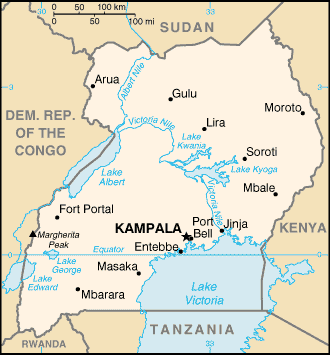
Church Planting International
Minibuses careening down heavily rutted dirt roads at breakneck speed, dodging by inches the other vehicles, pedestrians, bicycles, chickens, goats, and cows also using the track, breaking not so much the traffic laws as the laws of physics; mud-brick huts with no glass in the windows, no running water, and no electricity, but whose owners have cell phones; fresh avocados, papaya, mangoes, and passion fruit, but also (alas!) matooke (a green banana-like plant boiled down into a tasteless and nutritionless goo, used as the major staple); a troop of baboons patrolling the highway for handouts; 600 believers under a makeshift shelter of palm branches, clapping, swaying, dancing, and singing ecstatically, praising the Lord to the beat of African hand drums; "Mukama ye ba si 'bwe!" (praise the Lord); "Jesu ge kabaka!" (Jesus is king); thunderous shouts of "Amiina!" (Amen) resounding through the Kanisa (church): by such impressions one might try to convey something of the flavor of life in Uganda, East Africa. The attempt would be a failure, but better than nothing.
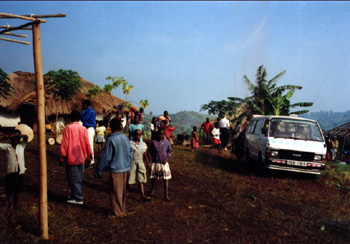
What sticks in my mind most of all are the questions asked by the national pastors I was there to teach. What do you do with a man who gets saved when already in possession, in traditional African fashion, of more than one wife? Missionaries used to make such a person divorce all his wives but the first one, but those rejected are shamed and potentially left destitute for the rest of their lives. How does one apply the Scripture in such a situation? Someone is telling our people that they have to worship on the seventh-day Sabbath to be saved. Is this true? All the cults come quoting Scripture. So how do you tell a true teacher from a false one? How do you tithe when you have no money? These are not questions with simple or easy answers. It was therefore a great but also a humbling privilege to come along side these men and search the Scriptures with them, trusting God to make our efforts profitable for his kingdom.
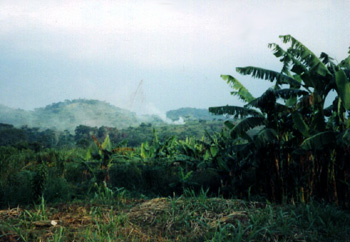
The question about true and false teaching was one of the most frequently and persistently asked. My answer was I Timothy 1:3-6, where Paul urges Timothy to remain at Ephesus and instruct certain men not to teach "strange doctrines nor to pay attention to endless genealogies which give rise to mere speculation rather than furthering the administration of God which is by faith" (NASB). What is the administration of God which is by faith? It is the Gospel, the good news that because of Christ's sacrifice we can be saved by grace through faith alone. "This is the ultimate test of any teaching," I concluded: "Does it teach me to trust in Jesus alone? Or does it teach me to trust in anything else, whether my own works, church tradition, or the teacher himself? That is how Paul teaches us to know the true use of Scripture from the false." The response to this was always much nodding of heads and broad smiles, a joyous recognition that the way to the heart of Scripture had been made plain. Those were the best moments, made possible by God's grace and the generosity and prayers of his people.
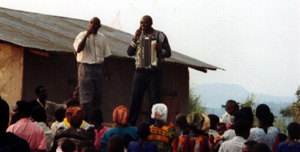
In three weeks then I was able to train 113 pastors in six seminars at different locations throughout the country. I also had the chance to preach five times in Sunday services and twice to believers in Bible conferences being held concurrently with the pastor's conferences which were my main responsibility. I preached twice in evangelistic crusades resulting in at least three confessions of faith, and served as a consultant for two councils of church leaders. There was also a good bit of informal counseling with numerous individual pastors and believers.
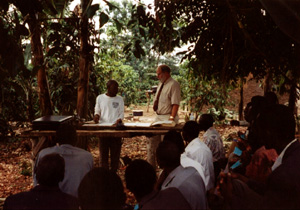
I want therefore to thank God, whose grace accounts for anything of value that was accomplished, and to thank those of you who prayed and who contributed financially to make the mission possible. The national leaders are begging me to return and follow up the work which was begun, so we may be asking for similar help again next summer.
Until then, "Mukama ye ba si 'bwe!" and "Amiina!"
August, 2002